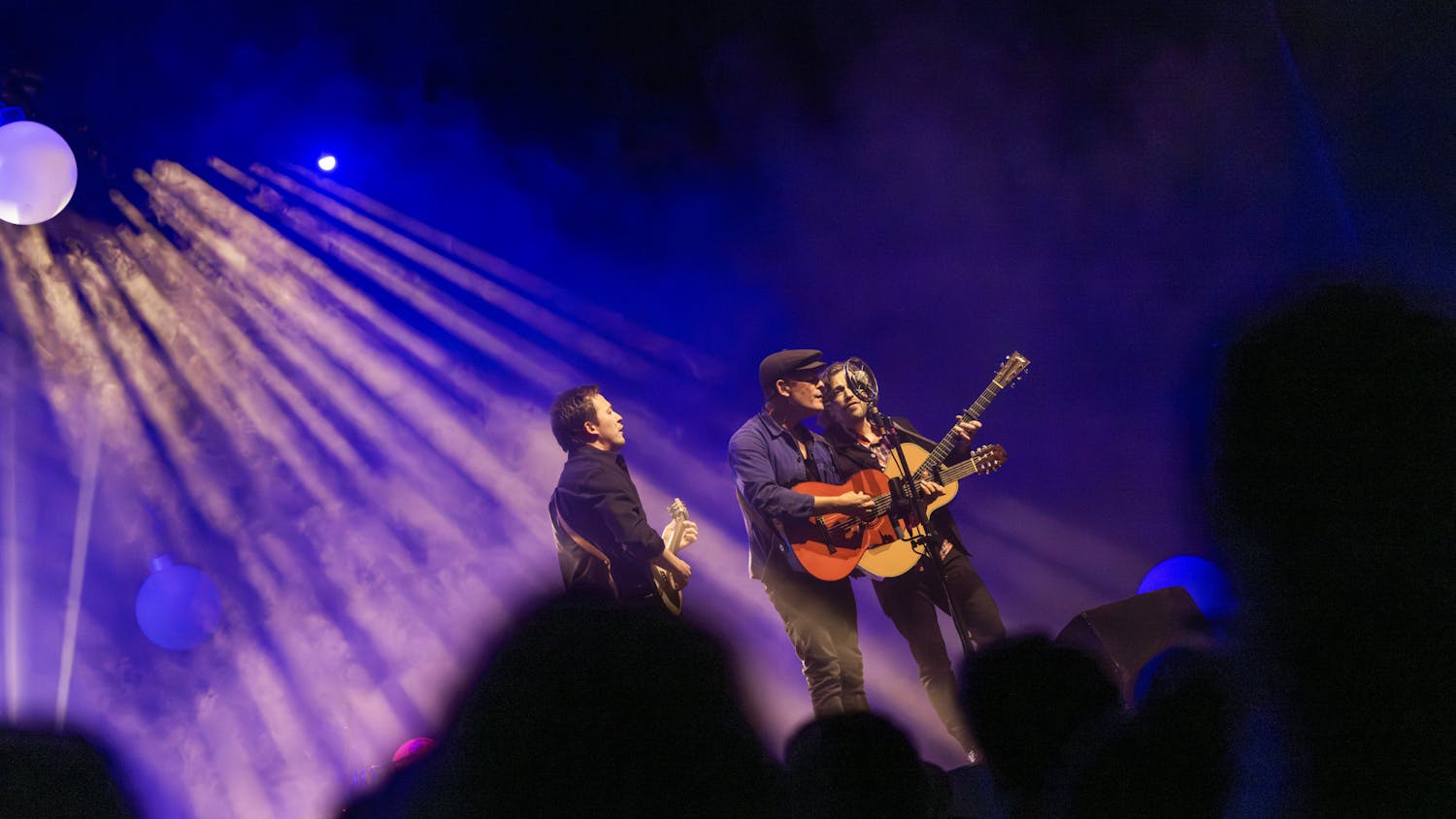Kenn Kweder and Mark Teague are early at their regular Tuesday night gig. Sitting across from us at Smokes’, they are as much of a staple here as the bar. Laughs ensue and pitchers of beer are drank as they regale us with tales of being thrown out of shows, growing up with the rock ‘n’ roll “cool cats," and philosophical advice.
34th Street Magazine: When did Smokes’ Tuesdays become “Kweder” and how did you meet?
Mark Teague: Kenny's been a very popular musician in this area since the 1970s (1977 to be precise), so I knew of him and I was walking down a street in 1986 on Bainbridge Street and he stopped me. ThenI played here on and off nights every other Tuesdays and he [Kweder] was playing the Tuesdays after that. And after a year or two, the guys I was playing with didn't want to do it anymore so Mr. Ryan recommended Kweder. We started that Tuesday and have been doing it ever since.

Street: What were your dreams of being rock stars, and how did this passion for rock ‘n’ roll start?
Kenn Kweder: By the time I was twenty-two, I was convinced I would be world famous. I mean, I had no doubt about it in my mind. This went on for years, a long time. I think I finally gave up on it at thirty seven when I didn’t have hit records.
MT: I started playing music when I was seven. When I was 14, I wanted to be a drummer and set up boxes up in my room and started playing them. And my mom made me take guitar since it was quieter, and that was it. I always had dreams of making it big. That dream never dies, but it does slowly goes away.
Street: What memory from Smokes’ stands out to you the most?
MT: Well I hate to tell this one, but it’s his fiftieth birthday.That always sticks out to me because we had just started playing, and I’m waiting for him to come in. He comes in, sort of walking in, and that’s the first time I had seen him like that here. He gets up, starts singing, and does four songs, and then puts his guitar down, falls down on the stage, and just lays there. He pulls himself back on a booth and then just sits there for an hour. He got up, someone took him out of here, and went home, and doesn’t remember any of it. With Kenny, you won’t ever know what you’ll get with him.
Street: If you were stuck on a desert island, what five musical experiences do you take with you?
KK: Highway 61, Blonde on Blonde, Trout Mask Replica, Ziggy Stardust, Roger Miller’s Greatest Hits....
MT: I’ll go albums: I have Van Halen's Fair Warning, Steely Dan's Aja, some things from Phil Keaggy, Dirty Loops, and Led Zeppelin's The Song Remains The Same.
Street: So how do you guys reconcile a rock 'n' roll past with covers now and a modern audience?
MT: It’s funny here because most of the kids here don’t wanna hear any of that modern stuff, they wanna hear us play Zeppelin. What we started out playing was classic rock, and the classic rock just keeps moving up a little bit.

Street: So at the end of last semester, you, Kweder, kind of made a name for yourself by doing those spontaneous poems. Like people would kind of line up at the end of the show and you’d just write like one or two stanzas. Where do you get the inspiration for that stuff?
KK: I mean I grew up studying the beatnik poets, y'kno so, Kerouac and all those guys…
MT: He’s a great storyteller too.
KK: I mean, I hung out with Tom Waits, and was always around those kinds of guys who were really into words, y'kno, building buildings with words, and my mother was also very much into poetry. So I was always kind of like that guy, y'kno. But that doesn't always mean you can always write like that, y'kno (snaps fingers), I was lucky to have written that for you, and sometimes I can do it, but sometimes I can’t do it. For whatever reason, last year and throughout the years, sometimes at the last shows, after I have a few drinks...
Street: Why is heroin the only way?
KK: Because it was metrically perfect (laughs). Of course, it’s tongue and cheek but the word fits there perfectly. It had to be the only way.
This interview has been edited and condensed.
Photos by Katie Dumke







